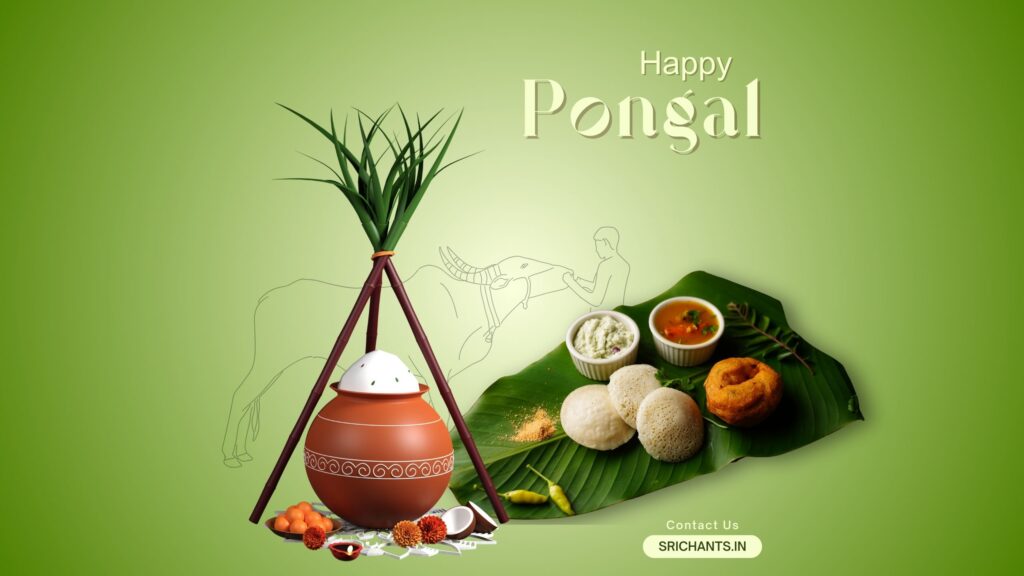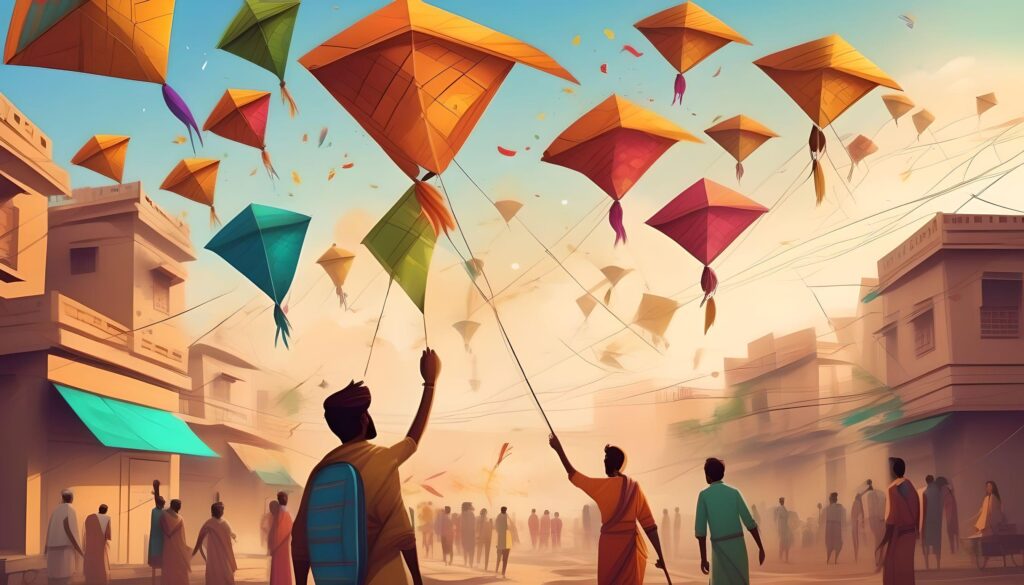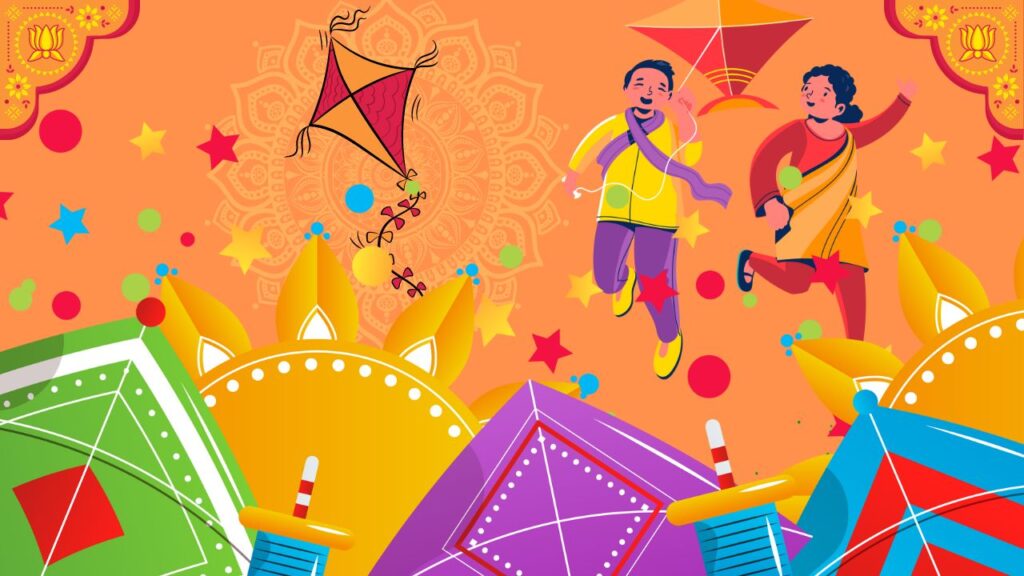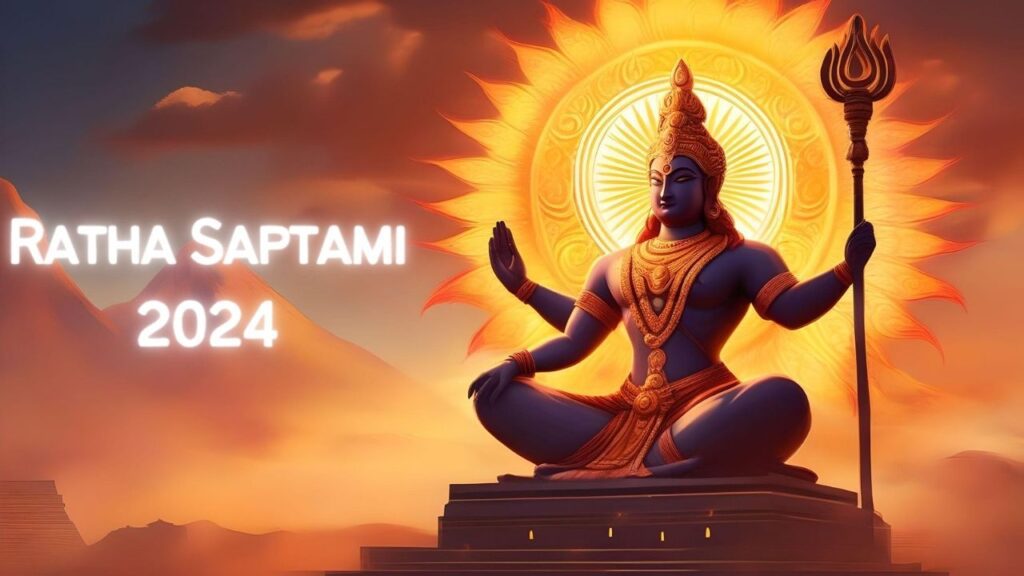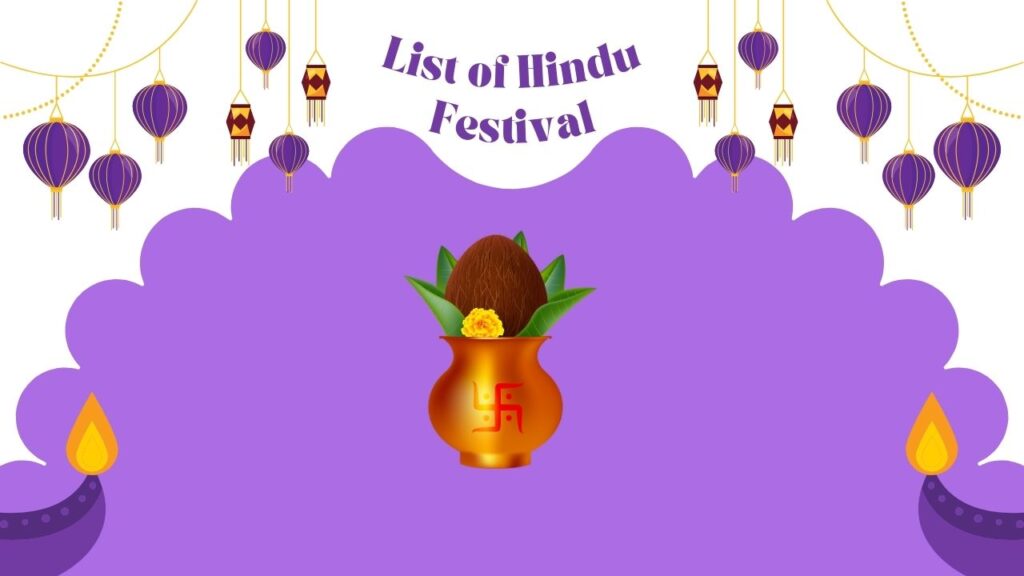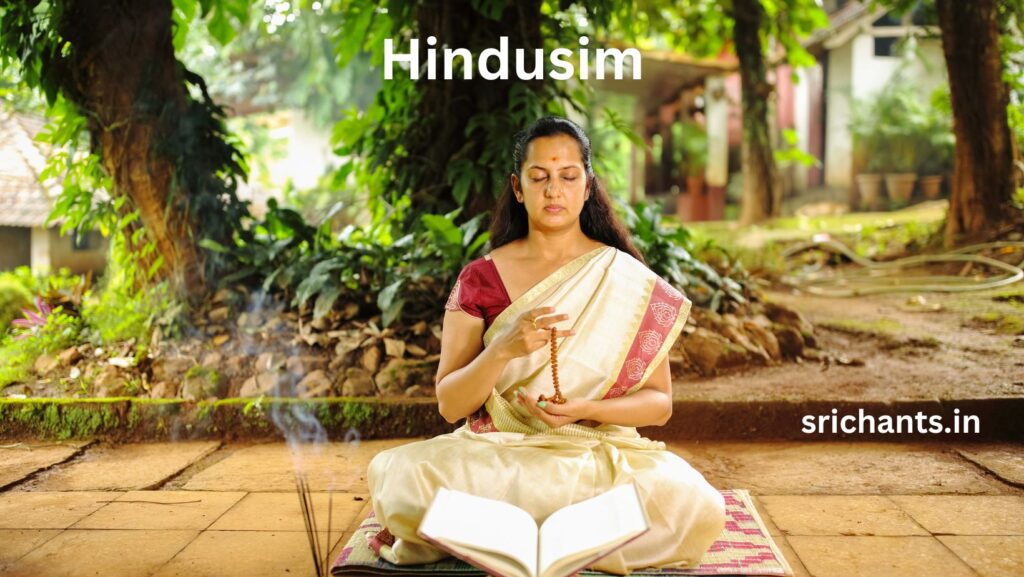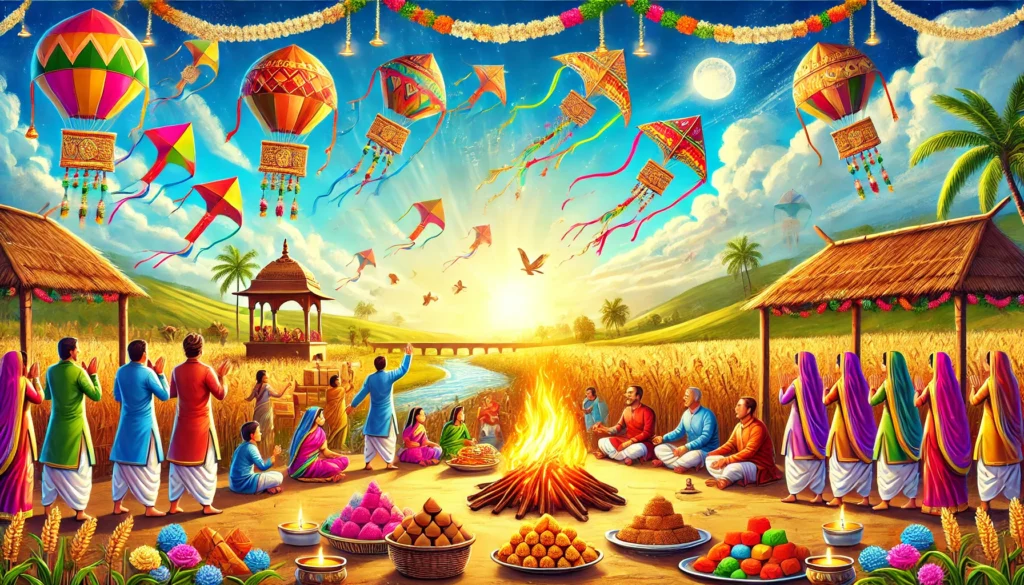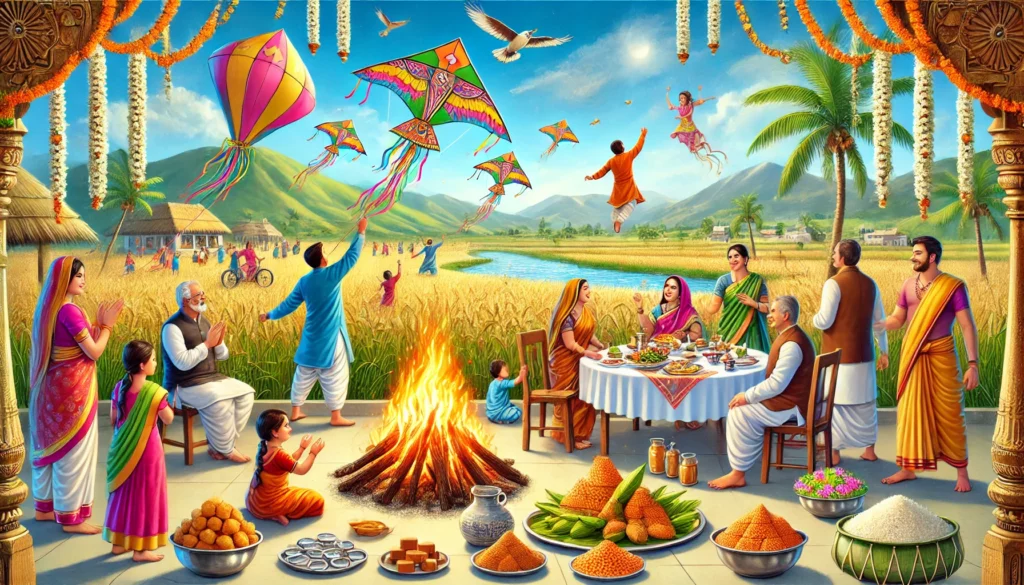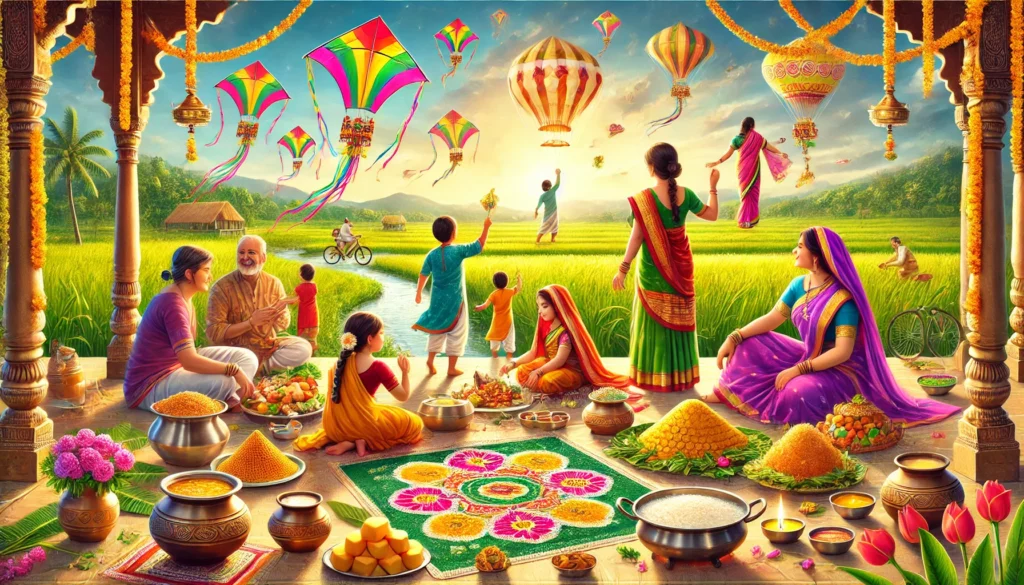Pongal in 2025 is on the 14th of January, Tuesday
Pongal 2025
Pongal, the quintessential Tamil harvest festival, is a grand celebration of nature’s bounty, culture, and tradition. In 2025, Pongal will be celebrated from January 14th to January 17th, encompassing four days of rituals, joy, and communal festivities. Each day—Bhogi, Thai Pongal, Mattu Pongal, and Kaanum Pongal—has its unique significance, making the festival a delightful experience for participants.
Introduction to Pongal
Pongal derives its name from the Tamil word meaning “to boil over,” symbolizing prosperity and abundance. This festival aligns with the solar movement into the zodiac sign of Capricorn, marking the onset of Uttarayan (northward journey of the Sun). It’s a time when farmers thank nature, the Sun, and cattle for their contributions to the harvest. Rooted in ancient Tamil traditions, Pongal is often considered the South Indian counterpart of Makar Sankranti.

The Four Festive Days of Pongal 2025
1. Bhogi Pongal (January 14, 2025)
Bhogi Pongal marks the beginning of the festivities. This day is dedicated to Lord Indra, the rain god, symbolizing the farmers’ gratitude for a bountiful harvest. Rituals involve cleaning homes, discarding old belongings, and lighting bonfires to signify a fresh start. Villages resonate with dance, music, and colorful rangolis (kolams) adorning entrances.
2. Thai Pongal (January 15, 2025)
Thai Pongal is the main day of the festival and coincides with Makar Sankranti in other parts of India. Devotees prepare the Pongal dish, a mixture of freshly harvested rice, milk, and jaggery, cooked outdoors in clay pots. As the pot boils over, people shout “Pongalo Pongal!” symbolizing abundance. The dish is first offered to Surya Dev (the Sun god), expressing gratitude for his life-sustaining energy.
Homes are decorated with banana and mango leaves, and vibrant kolams are drawn using rice flour. Families gather to pray, exchange gifts, and share traditional meals.
3. Mattu Pongal (January 16, 2025)
Dedicated to cattle, Mattu Pongal emphasizes their significance in agrarian life. Bulls and cows are bathed, adorned with garlands, and worshipped. Aarti is performed, and Pongal is offered to them as thanks for their role in farming. Rural areas host Jallikattu, the traditional bull-taming sport, showcasing bravery and community spirit.
4. Kaanum Pongal (January 17, 2025)
The final day, Kaanum Pongal, is about reunions and joy. Families and friends gather, visit elders to seek blessings, and enjoy festive meals. Women perform rituals wishing prosperity for their brothers, akin to Raksha Bandhan in North India. Traditional games and social gatherings enhance the celebratory mood.
Significance of Pongal
Pongal reflects Tamil Nadu’s agrarian roots and the deep cultural ethos of gratitude and harmony with nature. It’s a reminder to respect the elements—Sun, rain, and earth—that sustain life. The festival fosters community bonding, as people of all ages come together in joyous celebrations.

Interesting Facts About Pongal
- Historical Roots: Pongal dates back to the Sangam Age (circa 200 BC), making it one of India’s oldest festivals.
- Global Celebration: Tamil communities worldwide celebrate Pongal with the same fervor as in Tamil Nadu.
- Pongal Dish Variants: The festival features multiple versions of the dish, including Ven Pongal (savory) and Sakkarai Pongal (sweet).
- Cultural Symbolism: Overflowing Pongal represents surplus and prosperity, and kolams symbolize inviting auspiciousness.
Conclusion
Pongal is not merely a festival but a celebration of life, gratitude, and unity. It stands as a testament to the Tamil way of appreciating nature’s gifts and fostering cultural heritage. Pongal 2025 promises a memorable experience, steeped in traditions and festive cheer.
FAQs About Pongal 2025
Q1: What is the date of Pongal in 2025?
Pongal 2025 will be celebrated from January 14th to January 17th, beginning with Bhogi Pongal and ending with Kaanum Pongal.
Q2: What is the significance of Pongal?
Pongal is a harvest festival thanking nature, particularly the Sun and cattle, for agricultural prosperity. It marks the beginning of Uttarayan, symbolizing renewal and abundance.
Q3: How is Pongal celebrated?
The festival includes cleaning homes, preparing special dishes like Pongal, worshipping the Sun and cattle, decorating with kolams, and social gatherings.
Q4: What is the Pongal dish?
The Pongal dish is a traditional recipe made from rice, milk, and jaggery. It is prepared in a clay pot and offered to the Sun god before distribution.
Q5: What is Jallikattu?
Jallikattu is a bull-taming sport held during Mattu Pongal, showcasing bravery and celebrating the role of bulls in Tamil culture.
Q6: Can non-Tamils participate in Pongal?
Absolutely! Pongal’s universal themes of gratitude and togetherness make it a welcoming celebration for everyone.
Q7: Why is Pongal called the festival of abundance?
Pongal signifies the season of harvest and prosperity, with rituals focusing on thanksgiving for a bountiful yield and blessings for the future.
Q8: Is Pongal similar to Makar Sankranti?
While both festivals celebrate the Sun’s northward journey, Pongal is deeply rooted in Tamil culture with unique customs like Mattu Pongal and Kaanum Pongal.
May the festive spirit of Pongal fill your homes with joy and prosperity!
